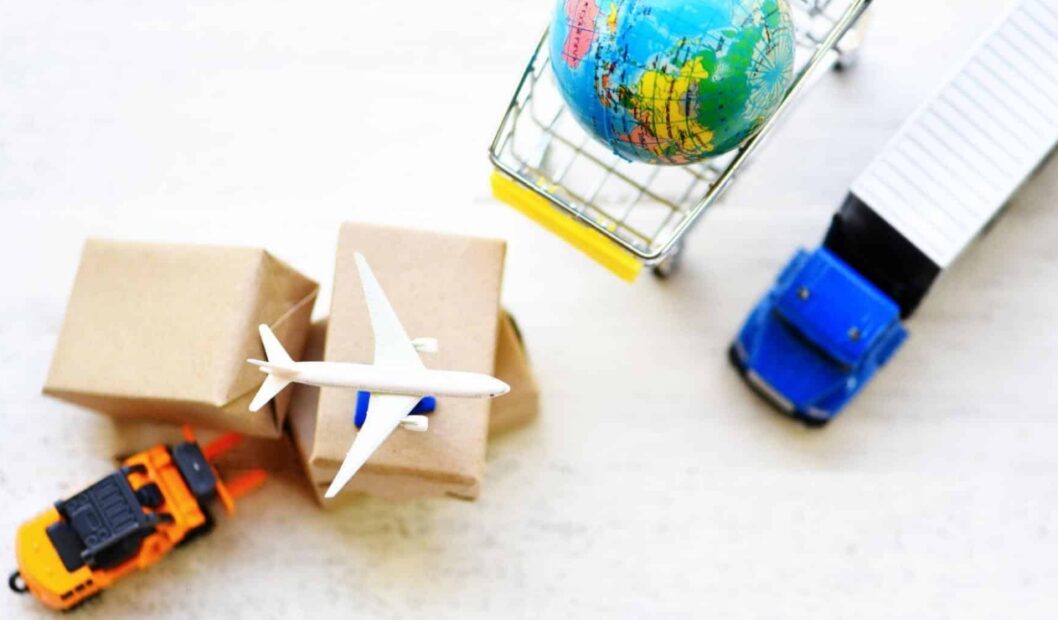If you’re an e-commerce business owner looking to expand globally, you will want to know a thing or two about international shipping. Mistakes can be costly when it comes to international shipping, and even if you work with a fulfilment partner, having the right knowledge can help you make the best decisions for your supply chain. At Delta Fulfilment, we consider ourselves experts in UK fulfilment services, so we’re here to share the essential dos and don’ts to set you on the path to worldwide business success.
International Shipping Terms To Know
Before we get into the nitty-gritty, here are a few terms used in the world of international shipping for e-commerce brands.
- Freight forwarder: A freight forwarder organises how your goods will be transported from one place to another, handling all the logistics.
- Bill of lading: This document is used as a receipt and contract, listing the type and quantity of goods, the destination, and the shipper.
- Incoterms: These are pre-defined terms set by the ICC to provide clear terms between global buyers and sellers for each part of the shipping process, including payment, transport, insurance, and even customs duties.
- Cargo insurance: A safety net that protects you financially if your goods are lost, damaged, or stolen during transit.
Now we’ve covered a few key terms you’ll see pop up in this post, let’s get to the good stuff!
The Dos of International Shipping
Choose Reliable Freight Forwarders
If you’re sending wholesale goods, your choice of freight forwarder can make or break your international shipping experience. A good freight forwarder not only ensures your goods reach their destination on time but also helps you navigate complex customs regulations, saving you time and potential legal headaches.
You should look for forwarders with positive reviews and testimonials and a wide network in various countries. If you can get a recommendation from a fellow business owner, that’s even better! However, you should also make sure that your chosen freight forwarder has experience in your specific industry or product type, as they will be better equipped to handle any unique challenges.
Properly Package Goods

The journey from warehouse to customer can be full of potential hazards. Proper packaging for your customer orders ensures they arrive in exactly the same condition they left your warehouse and improves your customer retention rate. How you package your products will depend on the type of products they are, but you can use these general guidelines to get you started.
- Opt for double-walled boxes for added strength.
- Use bubble wrap, foam, or paper to fill gaps and prevent items from moving.
- Use strong tape, ensuring all openings are sealed.
For perishable products, consider using insulated packaging and including ice packs for items that need to stay cool. You may also find anti-static bags beneficial to prevent damage to electronics during transit.
Consider All Modes of Transport
If you are sending bulk orders internationally, there are various ways to transport goods. Over 80% of all international goods are transported by sea, which makes sense as it’s one of the cheapest ways to send goods internationally. However, delivery timescales are longer with this route, especially compared to sending by air. This option is more expensive but you can ensure quick delivery of your goods.
Alternatively, road-based transport is often used for smaller intracontinental deliveries, while rail services are best suited for large order quantities over land.
Depending on the products your e-commerce business sells, you may find that you need to increase your international shipping delivery charges to customers to cover a more expensive mode of transport. For example, if you sell perishable goods, your best option is to send goods via air so they arrive quicker, but you need to ensure this decision doesn’t impact your profit margins.
You should consider all modes of transport to ship your goods internationally and, ideally, use several to accommodate the different order sizes, values and delivery options you want to offer your customers.
Invest in Cargo Insurance
Nobody wants to think about what can go wrong with international shipping, but the reality is that shipments can and do get damaged, lost, or stolen. Cargo insurance gives you financial protection and helps to protect your reputation with wholesale customers by quickly addressing and rectifying any issues. It’s worth noting that not all cargo insurance policies cover every risk or the full value of your products, so make sure you read the fine print and understand what’s included.
Comply with Customs, Duties & Regulations
Every country has its own customs procedures, and while the specifics vary, the goal is to regulate goods entering and leaving. Duties and taxes are paid on imported goods and these rates vary from country to country as well. It’s essential that you research this so you are clear on whether your goods are likely to have higher duties or taxes in certain countries and who will be responsible for the charges.
For example, if you’re a US-based business with access to UK fulfilment centres to supply customer orders in the UK, you will generally be responsible for covering these costs. This Incoterm is known as Delivery Duty Paid (DDP) shipping. Whereas, if you ship goods to customers in the UK from a US fulfilment centre, you will need to decide if that is a cost you will cover or pass on to your customers. If you choose to pass that cost on to your customers, the most widely used Incoterm is Delivery At Place (DAP) shipping. Our guide to DDP vs. DAP shipping provides many more examples than this and can help you decide which Incoterm, if either, will work best for your business.
Your Incoterms should be effectively communicated to international customers to ensure they know any additional costs they may incur before they receive their goods.
The Don’ts of International Shipping
Don’t Slack on Paperwork

Paperwork might seem tedious, but documenting everything helps keep a smooth process in all areas of your business, especially with shipping goods internationally. Proper documentation provides a clear record of what you’re shipping, where it’s going, and its value, which ensures that your goods move through customs without delays or penalties.
Inaccurate or incomplete information can lead to your shipment being held up and, in the worst-case scenario, result in fines or confiscation of your goods. In the event that your goods or documents are lost during their shipment, we recommend you keep copies of all shipping documents so you can track them and make any disputes or claims needed.
Don’t Underestimate Shipping Costs
International shipping costs can quickly escalate, especially when unexpected fees crop up. Some of the “hidden costs” with international shipping that you need to watch out for are:
- Demurrage and detention fees if your goods aren’t picked up from a port or returned in time.
- Fuel surcharges added by couriers.
- Delivering to remote areas.
If you are working with a fulfilment partner, they should ensure they get detailed quotes from couriers or freight forwarders that include all potential charges. You should also budget a little extra for unforeseen expenses, especially if you are new to offering international shipping of your goods.
It’s also worth noting that sending goods internationally can often increase packaging costs, especially for food goods that need controlled temperatures or electronics that need protection from electrostatic discharge.
Don’t Keep Customers in the Dark
In the world of D2C e-commerce, transparency isn’t just appreciated; it’s expected. As international shipping takes longer than nationwide shipping, keeping customers in the loop, especially when issues arise, improves their customer experience and trust in your brand. Having a clear line of communication with customers can also prevent misunderstandings and reduce the number of customer service queries, which can help reduce staffing costs or heavy workloads on your customer service team.
Follow these best practices for communicating with your customers from the time they place their order.
- Provide order tracking so customers can track their orders in real time.
- Communicate delays or problems with customers before they come to you.
- Ensure your website clearly outlines shipping times, costs, and any other important information.
- Have a clear returns policy on your website and consider partnering with local return centres.
Don’t Sacrifice Quality Over Costs
As you explore modes of transport, make sure you don’t let the costs impact the overall quality of your brand’s customer experience. While it might seem ideal to use sea freight for international delivery of your customer orders, your delivery timescales will be a lot longer. Depending on your business model, this may not be an issue. After all, brands like Shein quote 7-11 working days for deliveries and customers are happy to wait that long because of how inexpensive the goods are. However, if you’re selling a premium product or price competitively for your industry, making customers wait too long for their goods can lead to negative reviews or a low customer retention rate.
International Shipping Opens Doors
Offering international delivery for your customers can open up many doors for your business. So, even if this blog post has given you some food for thought, know that it’s a step that can scale your e-commerce brand to global success. If you’re feeling unsure about how to get started with this, at Delta Fulfilment, we’re here to steer you in the right direction. We specialise in UK and EU order fulfilment services for growing e-commerce brands, and we’re passionate about creating trustworthy and reliable fulfilment partnerships. After all, your business success is our business success!
 Dani Mechlowitz is the Founder & Managing Director of Delta Fulfilment. When you’re ready to expand into new markets, Dani and the Delta Fulfilment team are here to help guide you every step of the way. Request your quote today for UK and EU fulfilment solutions!
Dani Mechlowitz is the Founder & Managing Director of Delta Fulfilment. When you’re ready to expand into new markets, Dani and the Delta Fulfilment team are here to help guide you every step of the way. Request your quote today for UK and EU fulfilment solutions!

